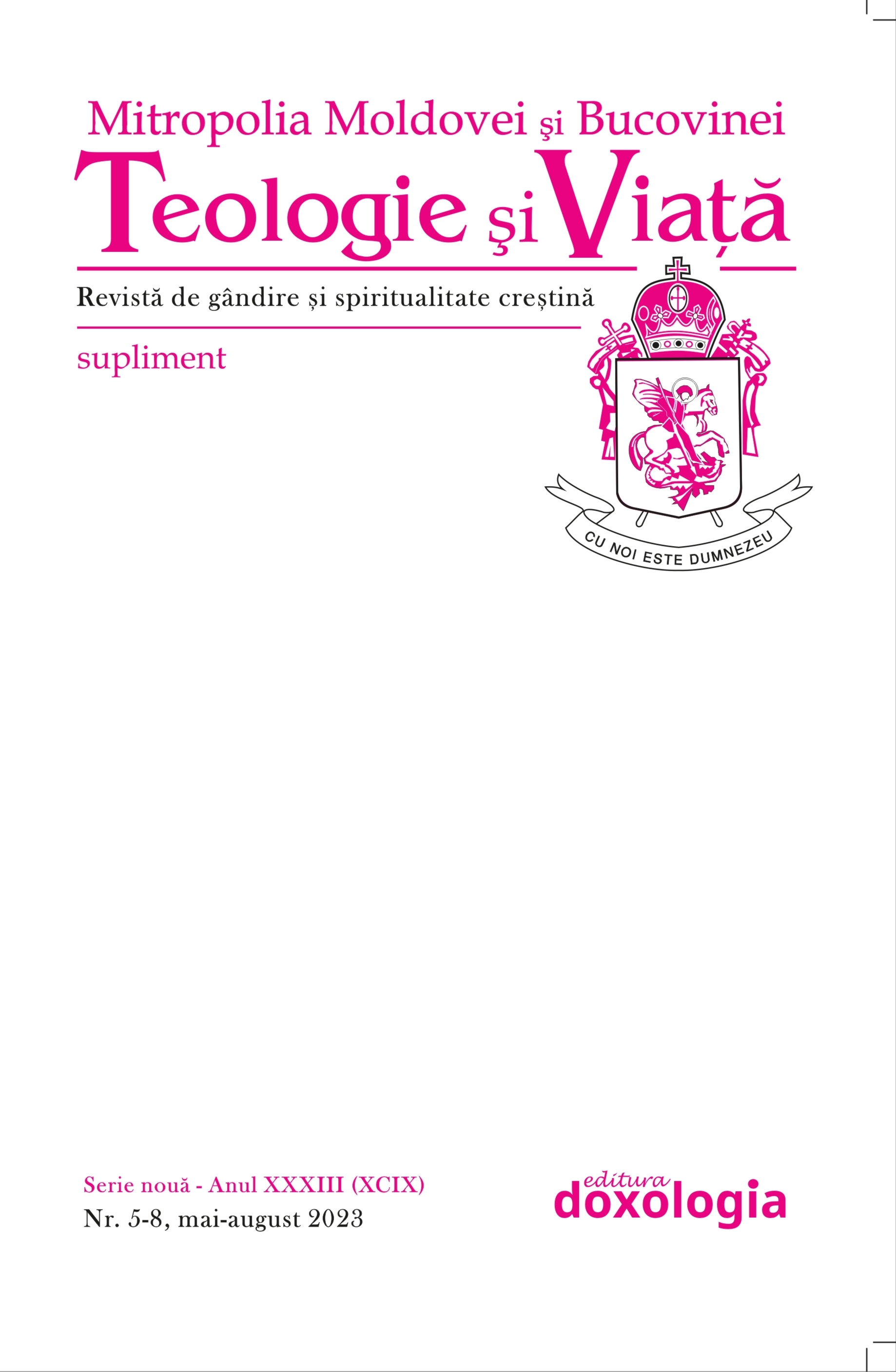Tradiția creștină a logicii. Despre utilizarea logicii în argumentarea teologică
The Christian Tradition of Logic. On the Use of Logic in Theological Argumentation
Author(s): Nichifor TănaseSubject(s): Christian Theology and Religion, Theology and Religion, Religion and science
Published by: Editura Doxologia
Keywords: Aristotle and “Christian” logic; Byzantine philosophy; the Dialectic of John of Damascus; theological argumentation;
Summary/Abstract: There is a reception of Hellenism, both in the Syro-Arab world as well as in Byzantium,which started from the fact that Christian thinkers were convinced that some pagan philosophers had also approximated the divine truth, but could not fully understand it. An important aspect that Byzantine thinkers inherited from the ancients is that related to the Christian tradition of logic. The debate among Byzantine philosophers about the value of logic constitutes one of the most interesting problems in the study of Byzantine intellectual life. There are many Byzantine authors who used logic in its traditional ancient forms; however, there were many others who rejected the use of logic in theology and who even argued that logical studies should be rejected altogether. But due to the substantial number of Byzantine manuscripts of Aristotle’s logical writings, as well as logical textbooks and treatises, the predominance of Aristotle’s logic in Byzantium was indisputable. It is evident that various philosophical traditions influenced Byzantine works on logic. The main influence comes from the Neoplatonic commentators (Porphyr, Ammonios, Philoponus, Simplikios, Olympiodoros, Elias), whose textsthe Byzantines knew very well. But the eventual presentation of Byzantine logical works as mere compilations of ideas already found in ancient sources would represent a simplification. There are occasions when Byzantine authors proudly emphasize their own contribution to logic or explicitly criticize Aristotle’s logical theories. Indeed, we can detect varying degrees of independent thought on their part. The tradition of “Christian” logic text books was an eclectic one, not going back to the original sources, but exploring the Aristotelian commentaries ofthe 5th-6th centuries. In Greek patristics, a process of transformation of some notions of classical ontology was introduced, in order to adapt them to the expression of new realities, revealed by the Mystery of the Incarnation. The Iconoclastic Controversy also provides a fascinating case of the use of logic in theological argumentation (the Aristotelian notion of homonymy). Therefore, Logic was studied continuously in Byzantium from the patristic period until the fall of Constantinople in 1453. Being the most important philosophical component of the trivium, Logic was studied in its own right, but also as part of the teaching of rhetoric. Anynovelty, however, was disguised as tradition, so that a thinker’s truly original insights were expressed as reflections or comments on already existing tradition. Greek patristic thought remained open to Greek philosophical issues, but avoided its closure in Greek philosophical systems. Modern adherents of a predominantly Orthodox Byzantine philosophy often posit it as the historical fulfillment of a synthesis between Hellenism and Christianity, an intellectual continuity of Hellenic thought within Orthodoxy and Byzantine spirituality.
Journal: Teologie şi Viaţă
- Issue Year: XXXIII/2023
- Issue No: 5-8 Suppl.
- Page Range: 105-133
- Page Count: 29
- Language: Romanian
- Content File-PDF

